Want to stay informed about upcoming teacher professional learning opportunities? Sign up for our mailing list here!
Want to stay informed about upcoming teacher professional learning opportunities? Sign up for our mailing list here!
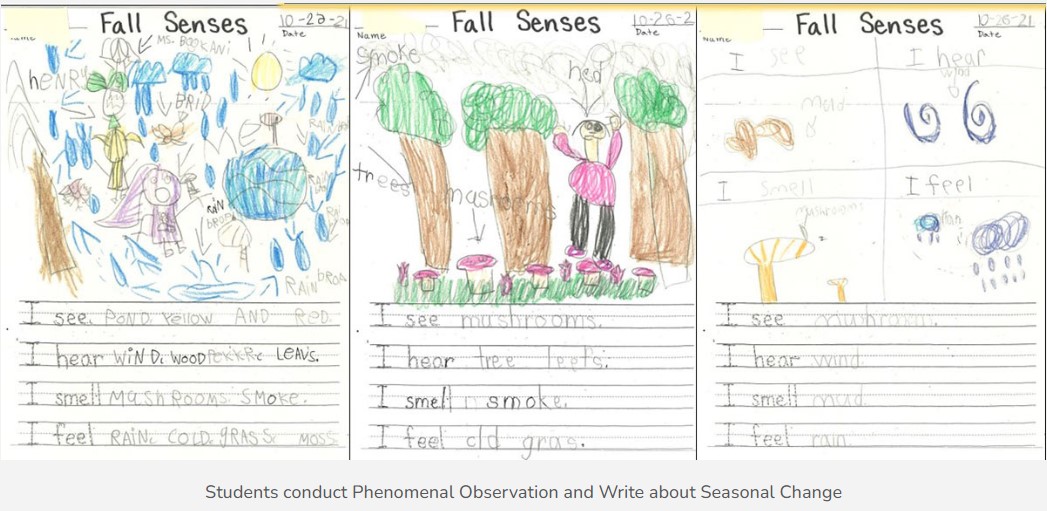
Seasonal Change in the Spring Workshop
Online follow-up to our Fall seasonal change course for preK-2nd grade teachers | April 24
Localizing Your OpenSciEd Secondary Science Unit
In-person workshop for 6–12 grade teachers | April 27
Localizing Science Working Group
OpenSciEd and Amplify Science Educators | Kickoff on August 14 & 15
Starting from a student’s experiences and community makes science meaningful and increases engagement while helping students understand how global issues like climate change are present and addressable in their lives. Our professional learning includes ready-to-use activities, strategies, and peer-to-peer conversations supporting connecting students’ funds of knowledge, families, and communities. Making those connections supports equity and increases student engagement.
Our professional learning includes a mix of STEM and Equity clock hours. There may be a small administrative fee to claim the clock hours in PDEnroller.
The Next Generation Science Standards (NGSS)* require students to use the practices, concepts, and content of science and engineering to understand phenomena and solve problems relevant to their lives. In our courses and workshops, we use 3-dimensional storylines, lessons, or activities to examine how you can use the standards to understand and address real-world environmental problems in your students’ community.
ELA, Math, and Social Studies standards are incorporated into our professional learning where appropriate, as multidisciplinary approaches can make more efficient use of class time and help students understand their communities.
90-minute workshops introduce ideas for teacher consideration, longer Saturdays provide opportunities to dig in, and multiple-session courses provide storyline-driven lessons with follow-up opportunities to reflect on the implementation and consider additional lessons and strategies. We also have a Localizing Working Group that meets in person for two days in the summer and then comes back together throughout the school year as they try out their ideas. Choose the length and commitment that works for you.
Learn more about the impact of our professional development courses from the teachers themselves in this video, read a blog about an evaluation of our program, or review the complete external evaluation.
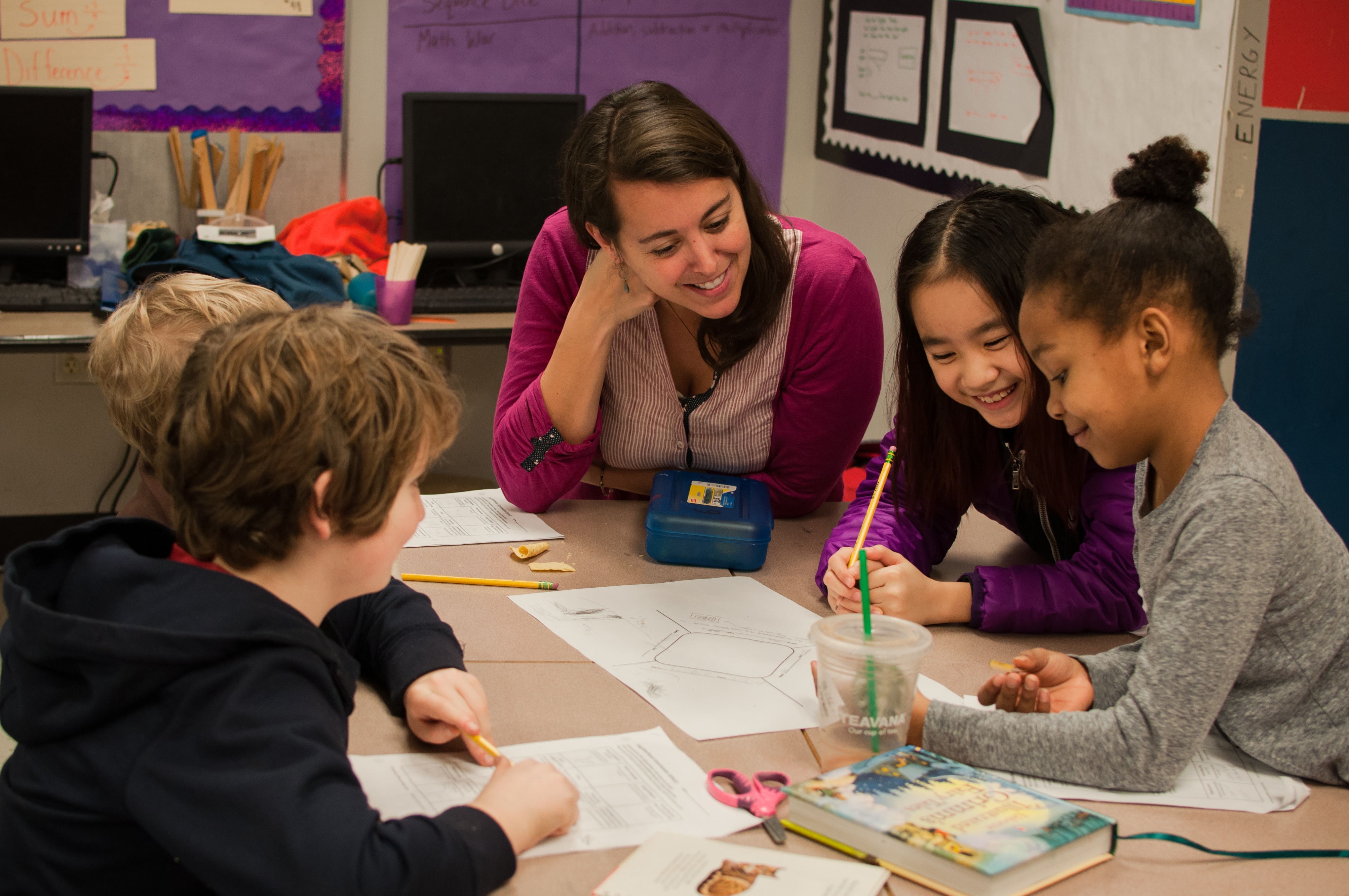
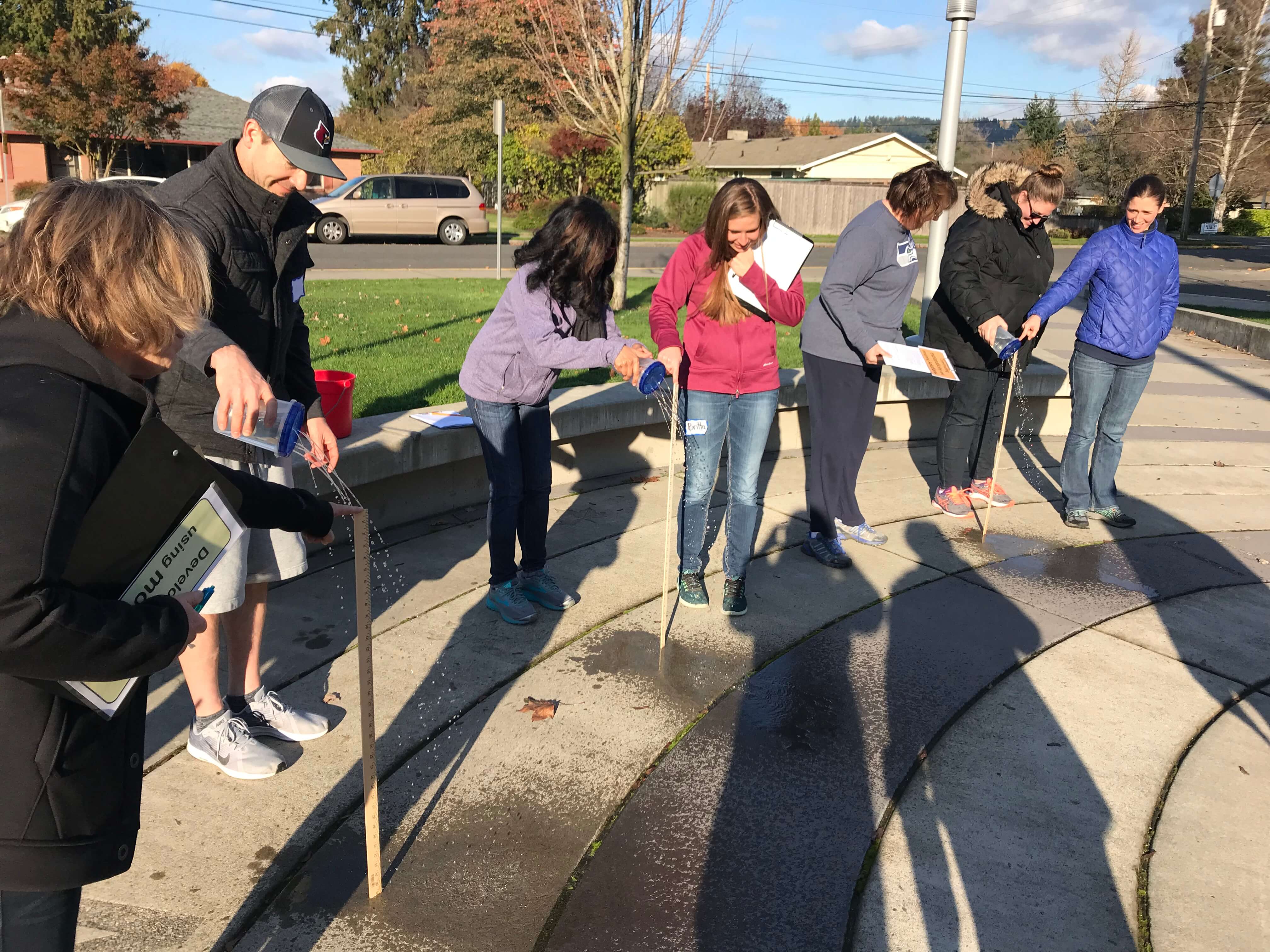
– Professional Development Course Participant
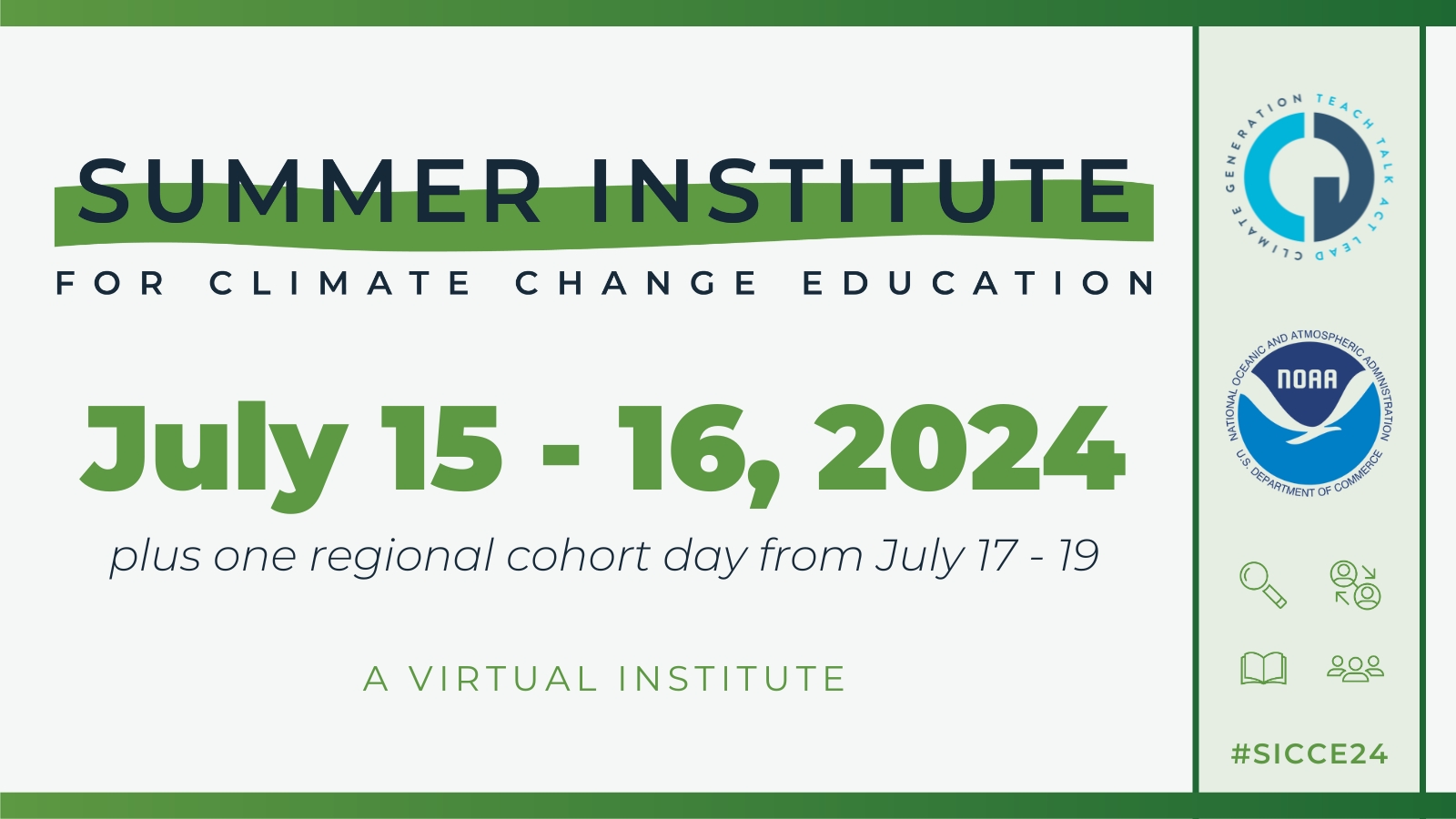
Are you looking for a professional learning experience to rejuvenate you? We’re leading the Northwest cohort for Climate Generation‘s Summer Institute for Climate Change Education! Join us and educators from across North America for an impactful three-day online training July 15 – 16 with one regional cohort day for Washington and Oregon on July 18 via Zoom. Teachers from all backgrounds and subjects are invited to attend and learn new tools, skills, and resources to teach climate change in science, social studies, ELA, environmental studies, geography, art, math, and more.
Localizing Amplify Science
IslandWood, Puget Sound ESD, and Olympic ESD have put together experienced K-8 teachers, TOSAs and District Science Leads to be a part of a year-long working group that will develop materials to support local connections in OpenSciEd and national Amplify Science Units.
On August 7th, 2023 we began the second year of our working group to plan to build on the appendices that were created and piloted in 2022 and create a few new ones.
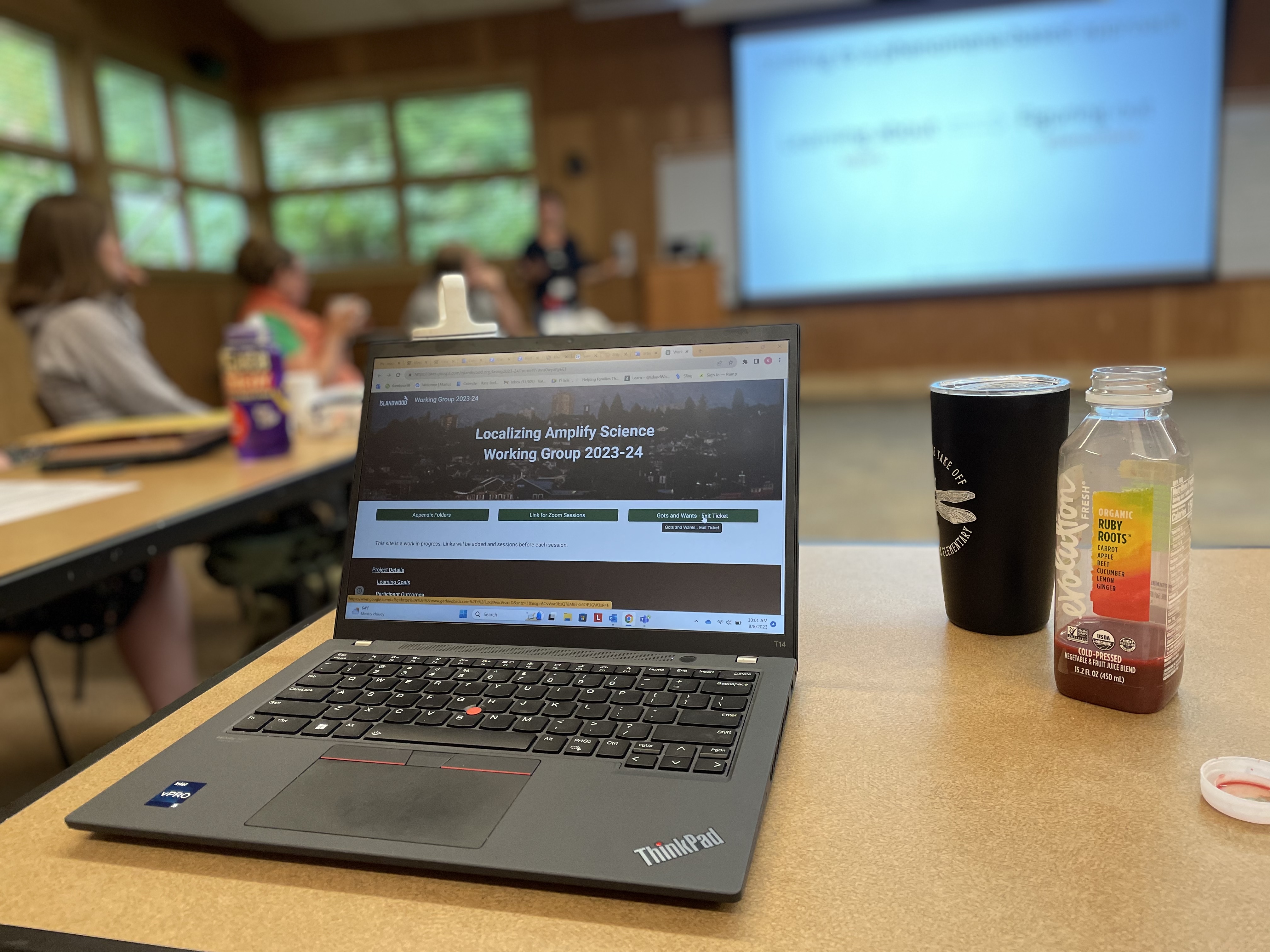
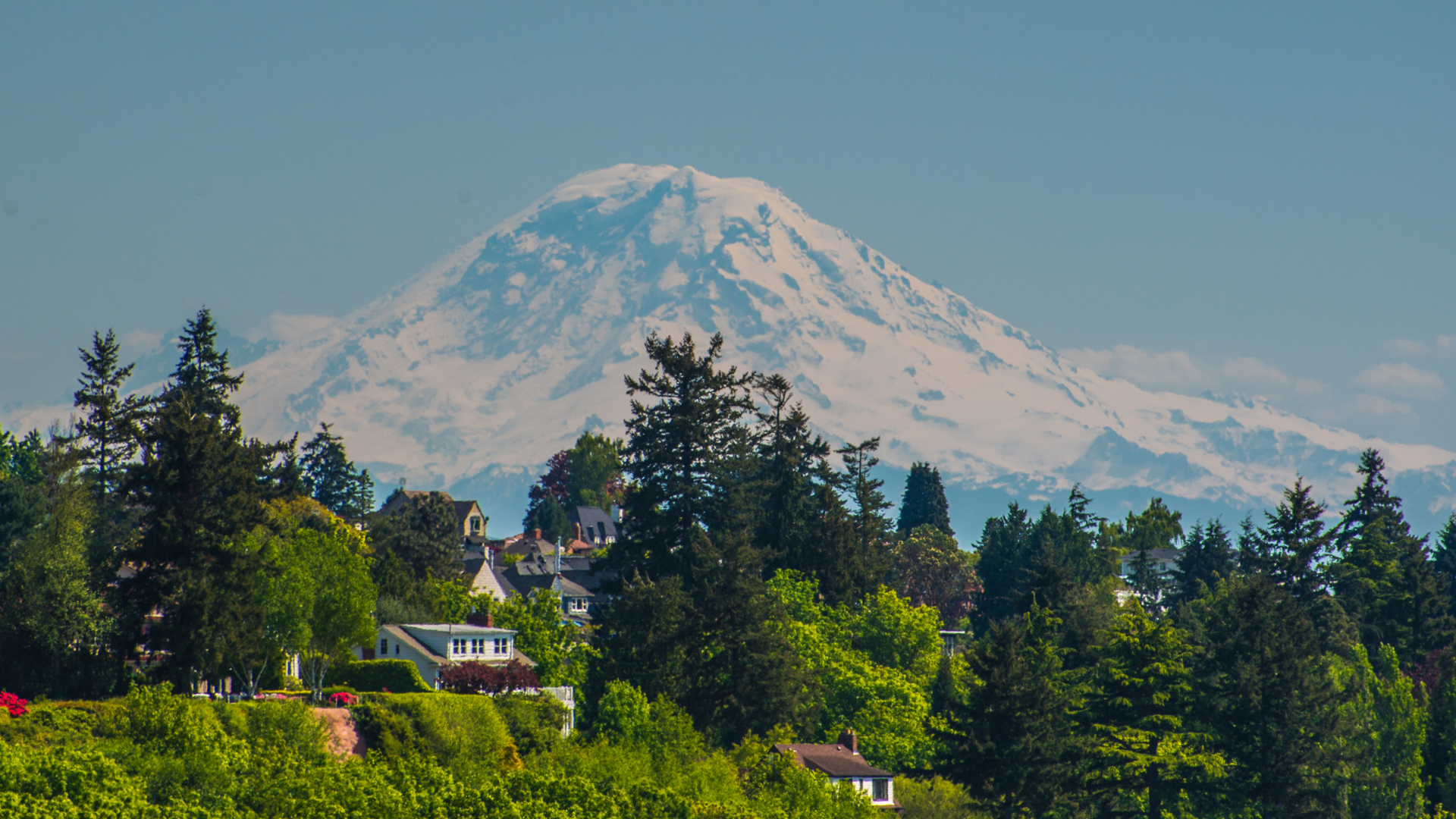
IslandWood has been working with the developers of Amplify Science, OpenSciEd, Educational Service Districts, teachers, and Seattle Public School’s science department to localize science units. The courses are designed to help your students make meaningful and authentic connections between the science they are doing in the classroom to their region and community.
If you are teaching a national science unit in your classroom, we have professional development designed to help you localize it.
Teachers share how IslandWood teacher professional learning courses impact their teaching and students!

– Chantal F., Teacher, Emerald Heights Elementary School

91% of teachers reported feeling more prepared to incorporate climate science into their teaching after participating in our professional development, up from just 41% prior to participation.

96% of teachers reported increased confidence in their ability to support equitable and just science education, up from 46%.

After participating in our professional development workshops, 96% percent of teachers reported an increased ability to connect to their students’ interests and identities, up from just 56% before. Learning that connects to students’ lives fosters deeper engagement, honors multiple ways of knowing, and helps students synthesize information better.

Each year, our teacher professional development courses create an exponential ripple of positive change and care for the environment.
STEM Teacher Professional Development STEM Teacher Professional Development STEM Teacher Professional Development STEM Teacher Professional Development STEM Teacher Professional Development STEM Teacher Professional Development STEM Teacher Professional Development STEM Teacher Professional Development STEM Teacher Professional Development
IslandWood acknowledges that we live and work on the ancestral land of the Coast Salish people, who have been stewards of this region's land and waters since time immemorial, and who continue to protect these lands and waters for future generations, as promised by the Point Elliott Treaty of 1855, the Treaty of Point No Point of 1855, and the Treaty of Medicine Creek of 1854.
While the majority of our work takes place on Suquamish (suq̀ʷabš) and Duwamish (dxʷdɐwʔabʃ) land, we also conduct programs on the land of the Snohomish (sduhúbʃ), Puyallup (spuyaləpabš), Muckleshoot (buklshuhls), Skokomish (sqoqc’bes), and S’Klallam (nəxʷsƛ̕ay̕əm) peoples.
IslandWood is a registered 501(c)(3) charitable organization. Our tax ID number is 31-1654076.
4450 Blakely Ave. NE, Bainbridge Island, WA 98110 206.855.4300
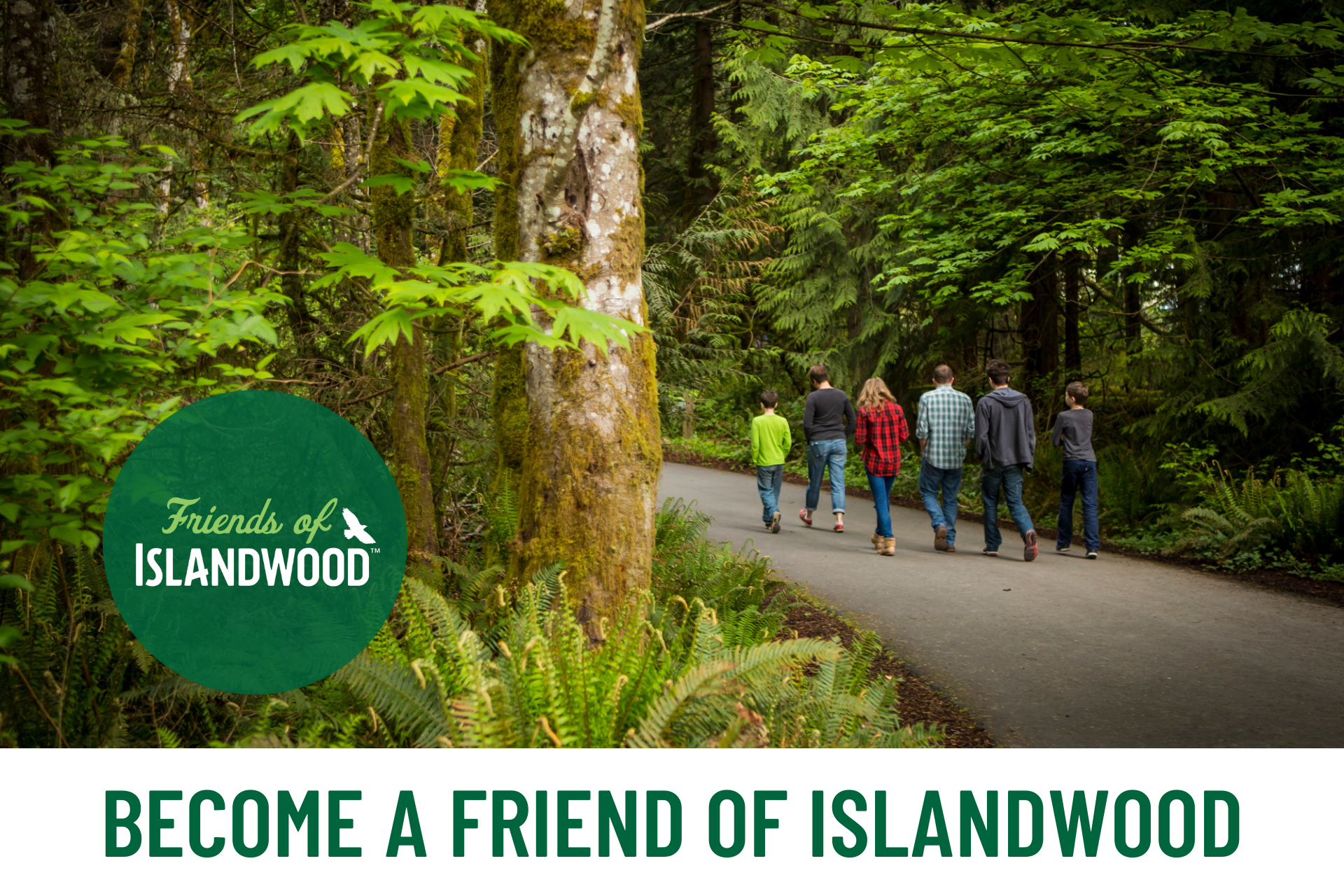
When you give $150 or more over twelve months, you become a Friend of IslandWood. You’re supporting our environmental education programs throughout the region AND you’ll have special access to our Bainbridge trails. Learn more!